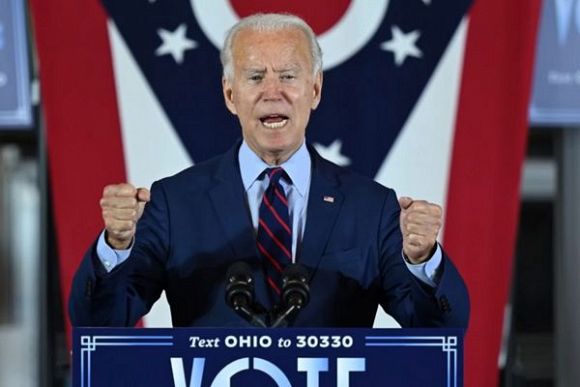The conflict in Yemen is a humanitarian crisis made worse by the involvement of Western governments around the world, writes Samuel Geddes.
ONE MIGHT ACCUSE the U.N. of being too diplomatic in describing the “disappointing outcome” of Monday’s donor conference for Yemen. The meeting of representatives from over 100 countries pledged U.S.$1.9 billion (AU$2.4 billion) in aid, barely half of the target of U.S.$3.4 billion (AU$4.4 billion).
Far more than a source of “disappointment”, it is yet another callous gesture by the international community as to the value they place on Yemeni life.
The fact that in the age of COVID-19, the world’s richest governments have suddenly discovered the cash to protect people's lives and livelihoods only magnifies the cruelty of those with the means to alleviate suffering.
While often far from the top of the news agenda, the carnage in the Arab world’s poorest nation has dragged on too long for anyone to plead ignorance.
The war began in March 2015 when a Saudi-led Arab coalition backed by the U.S. began bombing the country. The objective was to topple the Houthi movement which had seized the capital Sana’a, most of the northern provinces and overthrown the Western and Saudi-backed President Abdrabbuh Mansur Hadi.
In the years since, Western governments have sold eye-watering volumes of weapons to the Arab coalition, Britain transferring £6.2 billion ($AU11.1 billion) worth to the Kingdom and both the Obama and Trump administrations locking in arms deals totalling U.S.$110 billion (AU$142 billion).
The U.N. estimates in December placed the death toll at around 233,000, with 131,000 deaths resulting from “indirect causes”, namely hunger and disease.
In 2019, a UK court declared arms sales to Saudi Arabia to be unlawful, not that the Johnson Government took much notice. Australia’s Government, too, has insisted that it will continue arms exports to Saudi Arabia and the UAE, insisting it will consider the “emerging risks”.
U.S. President Joe Biden at least had the shame to announce he would halt U.S. support for, crucially vague, “offensive operations” in Yemen, while insisting the U.S. would continue to help Saudi Arabia “defend itself”.
The U.S. State Department’s rescinding of former President Trump’s terrorist designation of the Houthis was a welcome but initial step in the process of addressing the humanitarian catastrophe.
The Houthis, at least those with whom I have had contact, have shown no interest in whether the State Department classifies them as “terrorists”. Their single most insistent condition for ending the missile and drone attacks on Saudi Arabia is the complete lifting of the land, sea and air blockade.
While the Houthis are by no means immune from criticism, their repeated demand aligns with almost the entire humanitarian community’s calls for the blockade to end since the onset of hostilities.
Aid agencies have accused the Houthi-led de facto government in Sana’a of recruiting child soldiers, seizing food-aid and attempting to levy taxes on it in an attempt to fund their operations. Their missile and drone attacks have also hit Saudi civilian airports.
The fact is, however, that the majority of the human misery in Yemen results from the actions of the Western-backed Saudi-led coalition. Every conceivable aspect of food production, storage and water treatment has been targeted by fighter jets, tanks and armoured vehicles stamped with the Saudi flag but which are unmistakably American, British and Canadian in origin.
The level of Saudi dependence on Western weaponry and maintenance makes the continuation of the war, to a large extent, an American decision. If Washington continues not to exercise its full influence over the Saudi regime, the scope of the consequences will be hard to fathom.
Nearly 2,300,000 children under five and 1,200,000 new or expectant mothers face acute malnutrition in 2021. Of these, 400,000 children can be expected to die, the rest being stricken for life with permanent immune weakness, leaving them at the mercy of the world’s worst cholera outbreak on record, rampant malaria and diarrhea to say nothing of the coronavirus.
In a country where between six and 13 million face death from starvation, if we allow the famine to run its course, the scale of the disaster could well eclipse almost every famine of the 20th Century.
The North Korean famine of the 1990s, Ethiopia in the 1970s-'80s, Bangladesh and the crimes of the Khmer Rouge in Cambodia in the late '70s evoked far greater and more enduring public revulsion.
The U.N. has spent five years saying their findings should shock the world into action. It leaves one to wonder what it will take to sufficiently shock the world’s governments and the people who elect them.
Without immediate and decisive action, Yemen’s starvation will be mentioned in the company of Mao’s Great Leap Forward, the Ukrainian Holodomor and the great Bengal famine as the defining atrocities of their era and Yemenis will rightfully see us collectively as its accomplices.
Samuel Geddes is a Melbourne-based journalist whose work has also appeared in the British and Italian media. He can be followed at @SamuelGeddes.
 This work is licensed under a Creative Commons Attribution-NonCommercial-NoDerivs 3.0 Australia License
This work is licensed under a Creative Commons Attribution-NonCommercial-NoDerivs 3.0 Australia License
Support independent journalism Subscribe to IA.














